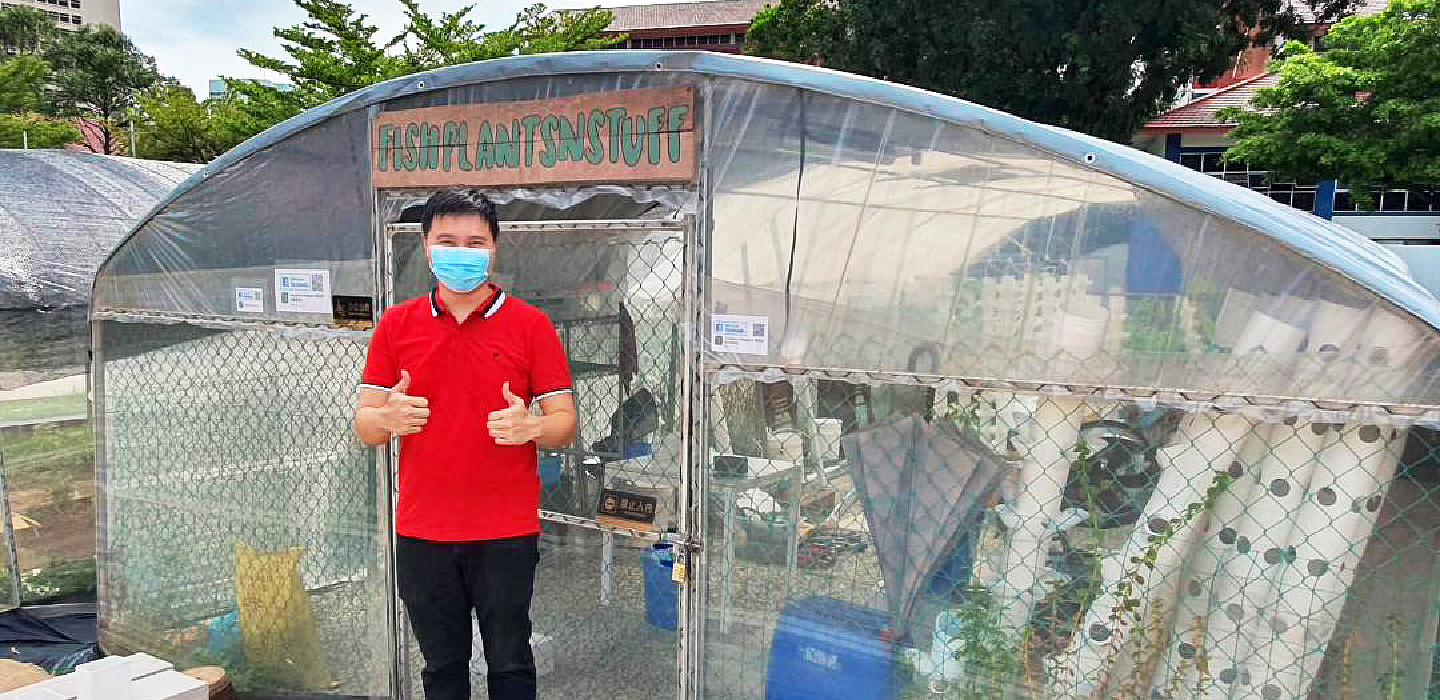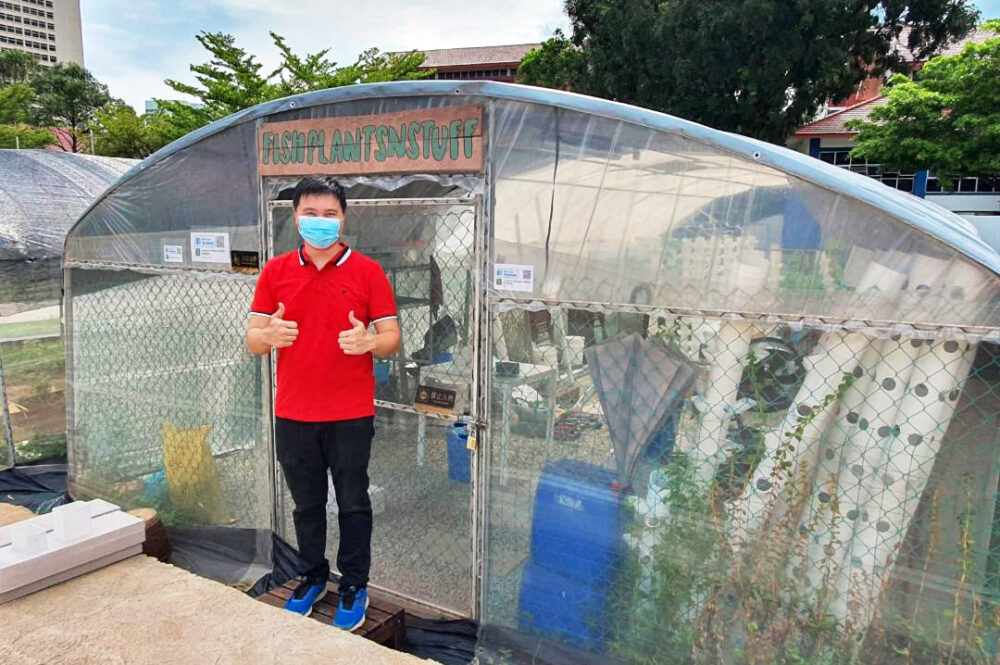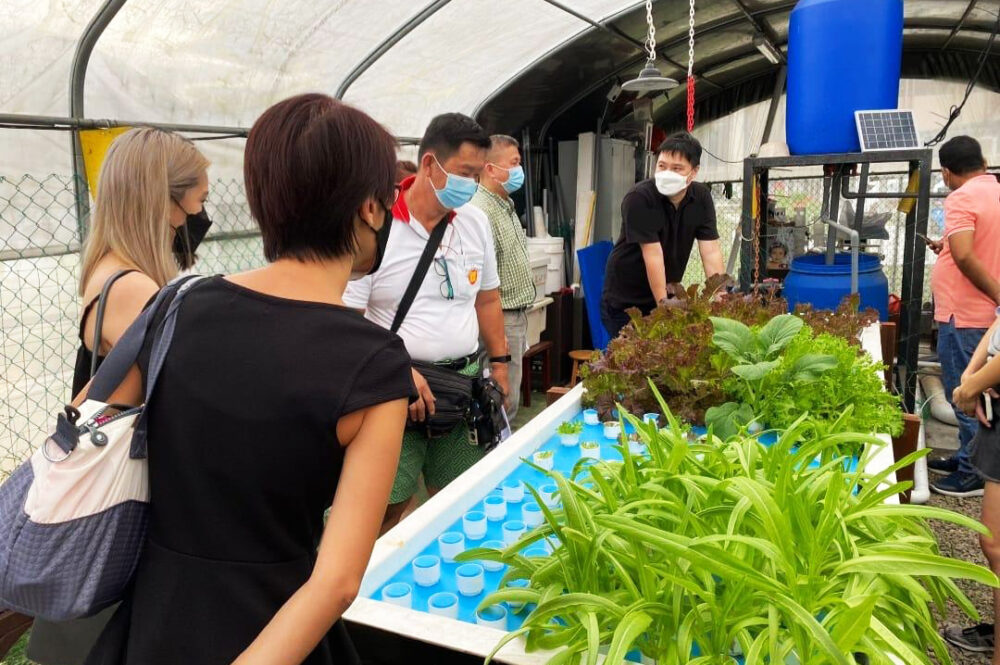Sustainability is in Terence Kam’s (BBA 2011) DNA. From encouraging food waste recycling in his undergraduate days to setting up farms in later years, Terence has kept his green fingers busy.
The magical spark of sustainability found Terence Kam. He was then an undergraduate in NUS Business School, proposing business solutions for the IUT Group, a firm that converts food waste to energy. This student project opened his eyes to what sustainability in the real world meant.
Upon graduation, Terence joined the firm as an executive, influencing companies to embark on food waste recycling programmes.
Fate saw him returning to NUS Business School to work as an Assistant Manager for its Executive Education office. Terence did not hold a role related to sustainability, but he saw a space where he could contribute. Of his initiative, he led efforts to ditch the use of plastic bottles for water dispensers, resulting in cost and labour savings.
Fast forward to the present, Terence is leading a team at NTUC to support companies and sectors in areas of sustainability in their business and workforce transformation.
Recognised for his sustainability work
Outside of work, Terence is active in promoting the green movement. He wanted to give back to the community and volunteered to incorporate sustainability elements for the World Water Day event at Jurong Lake. For his efforts in promoting water messages through various events, Singapore’s national water agency PUB honoured Terence with the Watermark Award in 2012—the highest accolade for individuals and organisations for their contributions towards water resource sustainability.
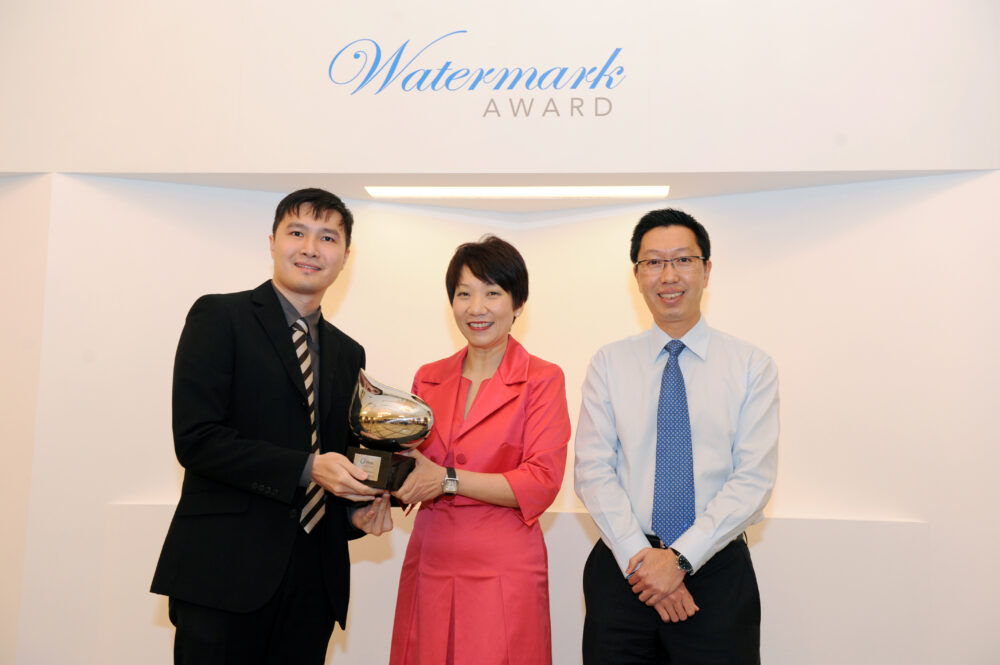
Terence Kam (left) was one of the Watermark Awards recipients in 2012. (Source: PUB)
Setting up farms
Terence’s sustainability streak led him to become a certified Aquaponics Farm Designer. He said, “I have always wanted to do something for food security and was hoping to learn a professional skill which could come in handy when I retire in future. Hence, I took up this certification.”
Lending his expertise, he joined YMCA volunteers in building an aquaponics system for a school in The Philippines. The aquaponics system uses nutrient-rich water from fish waste to fertilise the plants. In return, clean water flows back to the fish. To Terence, it was a special project as “it was my first overseas project to bring a sustainable growing method to the community”.
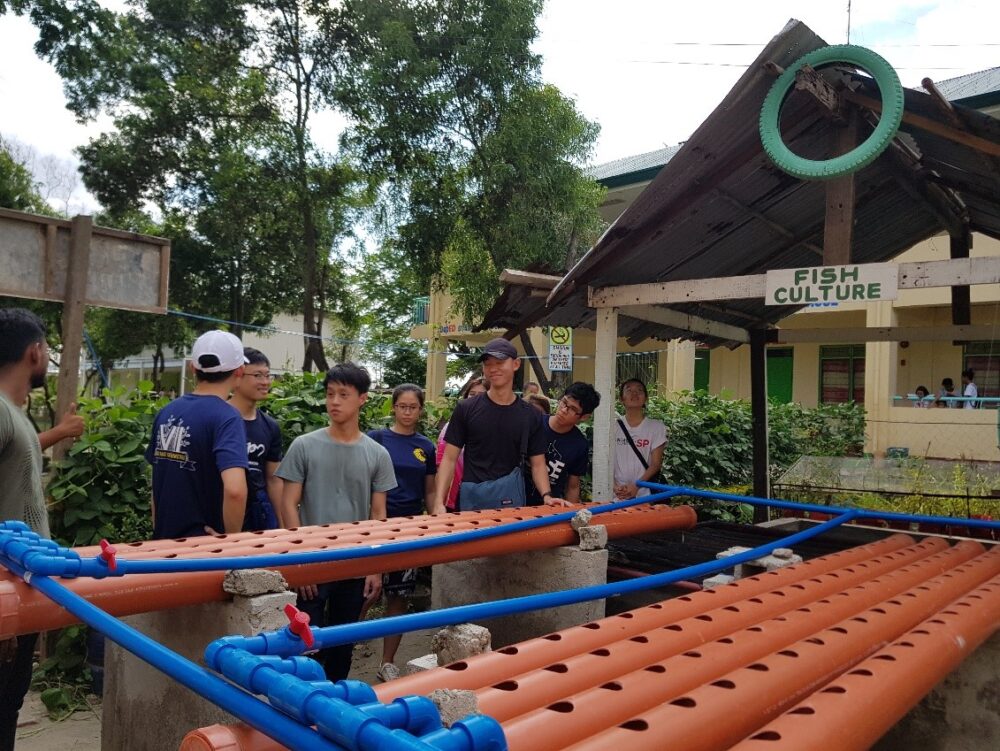
These water pipes have holes which allow crops to grow in them. (Source: YMCA)
He spoke of other memorable sustainability projects, such as the 800-square-feet aquaponics farm in Bukit Merah. With just him and his buddy, they built the farm from scratch. “Manpower wasn’t an option for us as we started operating just before Singapore went into circuit breaker mode in 2020. Despite all the challenges, we tested several growing methods, sharpened our handy skills and gained lots of knowledge,” said Terence.
Terence and the aquaponics farm in Bukit Merah
While working in the Economic Development Board (EDB) of Singapore, he built a farming system for his colleagues. Terence recounted, “I constructed a mini farming system to offer a farm-to-table experience for my colleagues and a demonstration on environment sustainability where we can have access to leafy greens despite having limited space in Singapore. We harvested kailan and baby bok choy, and the taste was priceless.”
Years have passed since his undergraduate days, but the sustainability spark in Terence is still burning bright. His latest project is a 1,200-square-feet hydroponics offshore farm near Changi. “It is the first offshore project where we build vertical grow towers on a floating platform, supplying leafy greens to the restaurant next to the floating platform. The project’s first phase is expected to be completed by July 2022.”
Starting small
To Terence, the biggest challenge for sustainability is translating plans into actions. Some may be deterred by several rounds of administrative approvals, but Terence feels that we can always start small.
“If we are unable to implement big projects, we can consider working on smaller projects that do not require much space and paper approvals. Schools and society can be part of the journey to collaborate on these projects. This could help shape a more sustainable community and allow innovative projects for clean energy, agri-tech and sustainable design to take off,” said Terence.



